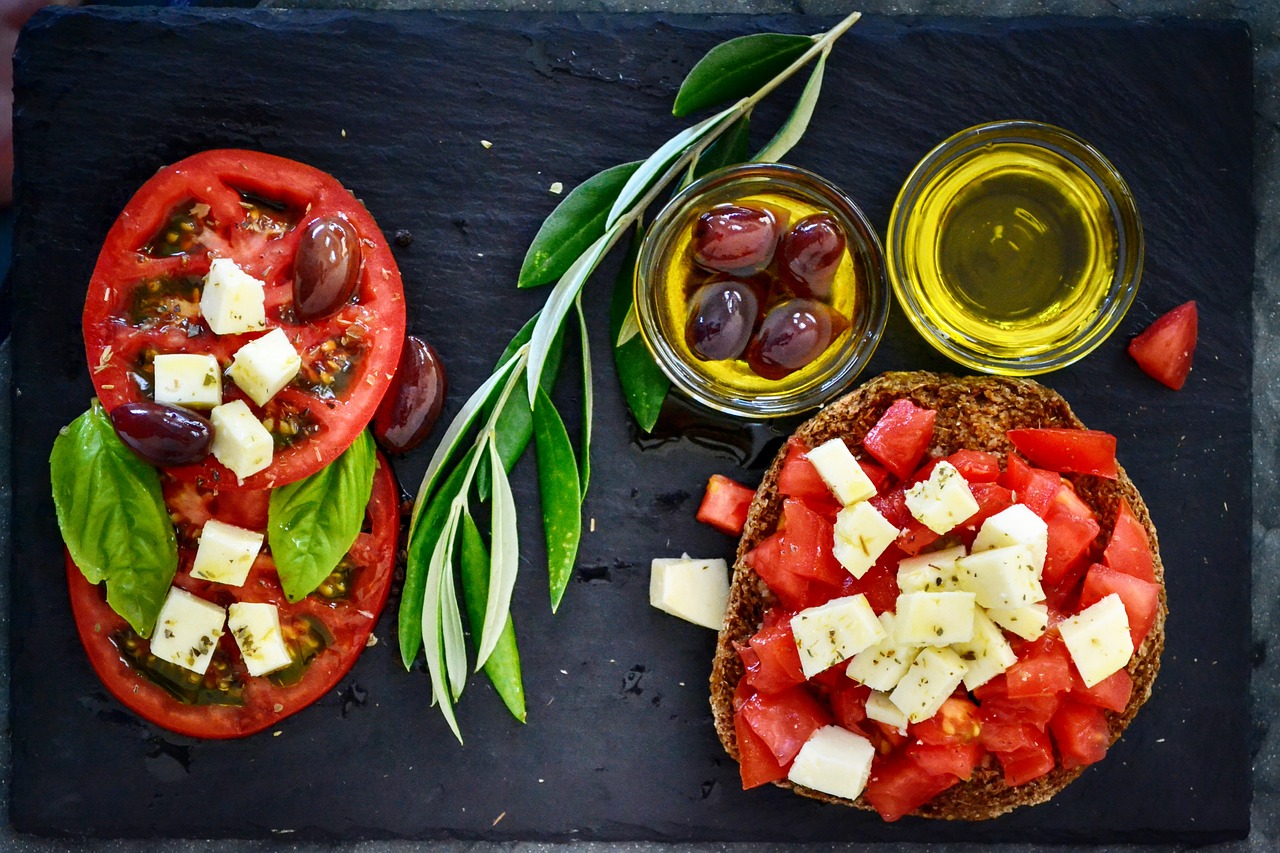Embarking on a journey towards better health often leads you to explore various diets, but the Mediterranean diet stands out for its flavorful approach to wholesome eating. This heart-healthy eating pattern focuses on incorporating an abundance of fresh fruits and vegetables, whole grains, nuts, and healthy fats like olive oil into your daily meals, which can have a significant impact on managing your cholesterol levels. By embracing the culinary traditions of Mediterranean cuisine, you’re not only treating your taste buds to an array of delightful flavors but also taking proactive steps to support your cardiovascular health and overall well-being.
Understanding Cholesterol and Its Impact on Health
Cholesterol is a waxy substance found in your blood that your body actually needs to build healthy cells. However, it’s important to understand the difference between the types of cholesterol and the impact they can have on your health.
Defining Good (HDL) vs Bad (LDL) Cholesterol
High-density lipoprotein (HDL) is often termed as the “good” cholesterol. Imagine HDL as your body’s sanitation worker, roaming through your bloodstream and collecting “bad” cholesterol to take it away from your arteries. On the other hand, low-density lipoprotein (LDL) is known as the “bad” cholesterol because it can accumulate on the walls of your blood vessels, causing blockages.
How Cholesterol Affects Heart Health
When LDL cholesterol levels are high, it can build up on the walls of your arteries and form plaque, a condition known as atherosclerosis. This plaque can narrow your arteries and make them less flexible, leading to a higher risk of heart attack and stroke. Conversely, a higher level of HDL cholesterol can help reduce the risk of these cardiovascular problems because it helps remove LDL cholesterol from your arteries.
The Role of Diet in Regulating Blood Cholesterol Levels
Your diet plays a key role in managing your cholesterol levels. Eating foods high in saturated fats, trans fats, and cholesterol can raise your bad cholesterol levels. Conversely, consuming healthier options — rich in fiber and unsaturated fats — can help lower LDL cholesterol and boost HDL cholesterol.
An Overview of the Mediterranean Diet
The Mediterranean Diet is not just a meal plan but a way of life that has been linked to numerous health benefits, including better cholesterol management.
History and Cultural Significance
The Mediterranean Diet is rooted in the eating patterns of countries bordering the Mediterranean Sea, where people have historically lived longer and suffered from fewer chronic diseases compared to other populations. The diet and lifestyle were first popularized in the 1960s and continue to receive attention due to their associated health benefits.
Key Components of the Mediterranean Diet
This diet is rich in fruits, vegetables, whole grains, olive oil, nuts, legumes, fish, and poultry. It emphasizes fresh, seasonal, and minimally-processed foods. Red meat and foods high in saturated fats are consumed less frequently.
Typical Foods and Meals
The Mediterranean Diet is full of flavor and variety, featuring meals like Greek salad, tabbouleh, hummus, and seafood paella. Snacks might include olives, nuts, and fresh fruit. This diet is more about enjoying natural and whole foods rather than strict calorie counting or food restrictions.

The Link Between the Mediterranean Diet and Cholesterol
The relationship between the Mediterranean Diet and cholesterol has been the subject of many scientific studies.
Scientific Studies on the Mediterranean Diet’s Effects on Cholesterol
Research shows that the components of the Mediterranean Diet can individually and collectively influence cholesterol levels favorably. The diet has been linked to lower levels of LDL cholesterol and higher levels of HDL cholesterol.
Comparing the Mediterranean Diet to Other Diets
When compared to other popular diets, the Mediterranean Diet often comes out on top for promoting heart health. It doesn’t focus on macronutrient ratios but rather on overall food quality and the pleasure of eating healthful, tasty meals.
Impact of the Mediterranean Diet on HDL and LDL Levels
This diet can lower the risk of heart disease by impacting cholesterol levels positively — it tends to lower LDL while increasing HDL cholesterol. The antioxidants and unsaturated fats in this diet play a big role in this effect.
Essential Fats: The Role of Healthy Fats in the Mediterranean Diet
Not all fats are created equal, and the Mediterranean Diet embraces the consumption of healthy fats.
Monounsaturated and Polyunsaturated Fats
These are the “good” fats. Monounsaturated fats, found in olive oil and nuts, and polyunsaturated fats, found in fatty fish and seeds, can help reduce bad cholesterol levels and are beneficial to heart health.
Sources of Healthy Fats in the Diet
Sources of healthy fats in the Mediterranean Diet include olive oil, avocados, nuts, seeds, and fatty fish such as salmon, mackerel, and sardines. These foods not only help manage cholesterol but also provide nutrients to support overall health.
Balancing Fats for Optimal Cholesterol Management
In the Mediterranean Diet, the emphasis is on replacing saturated fats with monounsaturated and polyunsaturated fats. This promotes a favorable balance that can help manage cholesterol levels and reduce the risk of heart disease.

Fruits and Vegetables: Antioxidants and Fiber
Fruits and vegetables are integral to the Mediterranean Diet and offer benefits that extend to cholesterol management.
Types of Antioxidants and Their Benefits
These foods are rich in antioxidants such as vitamins C and E, selenium, and flavonoids. Antioxidants help combat oxidative stress and inflammation, which can contribute to heart disease.
The Importance of Fiber in Cholesterol Reduction
Fruits and vegetables are also high in fiber, which is crucial for cholesterol reduction. Soluble fiber, in particular, can bind to cholesterol in the digestive system, helping to remove it from the body.
Suggested Mediterranean Diet Servings for Fruits and Vegetables
You should aim for at least five servings of fruits and vegetables per day. This not only aids in cholesterol management but also contributes to overall nutrient intake and health.
Whole Grains and Cholesterol
Whole grains are another cornerstone of the Mediterranean Diet that can affect cholesterol levels.
Benefits of Whole Grains Over Refined Grains
Whole grains retain all parts of the grain (the bran, germ, and endosperm), providing more nutrients and fiber than refined grains. Regular consumption of whole grains can contribute to lower LDL cholesterol.
Incorporating Whole Grains into a Mediterranean Diet
When following this diet, opt for whole grain bread, pasta, rice, and other grains like quinoa and farro. These can be enjoyed in hearty grain salads, soups, or as sides.
The Effect on Cholesterol Levels
Studies have shown that including whole grains in your diet can lower the risk of heart disease and help maintain healthy cholesterol levels.

The Impact of Nuts and Legumes on Cholesterol
Nuts and legumes are another key component of the Mediterranean Diet that can positively influence cholesterol levels.
Nutrition Profile of Nuts and Legumes
These foods contain a mix of monounsaturated fats, soluble fiber, and protein that can help control cholesterol. They also offer minerals and vitamins essential for heart health.
How to Include Nuts and Legumes in Your Diet
Incorporating these into meals and snacks is simple: add lentils to salads, enjoy hummus as a snack, or have a handful of almonds as an afternoon pick-me-up.
Studies Supporting Their Positive Effects on Cholesterol
Numerous studies have shown that eating nuts and legumes is associated with lower LDL cholesterol and reduced risk of heart disease.
Fish and Poultry: Mediterranean Protein Sources and Their Effect on Cholesterol Levels
The Mediterranean Diet emphasizes fish and poultry as primary protein sources.
Health Benefits of Omega-3 Fatty Acids in Fish
Fatty fish are a rich source of omega-3 fatty acids, which are known for their heart-healthy benefits, including potential cholesterol level improvements.
Comparison of Red Meat Versus Poultry and Fish
Red meat is typically high in saturated fat, which can raise cholesterol levels, whereas poultry and fish provide leaner protein options that support heart health when consumed in moderation.
Recommended Servings for Heart Health
It’s recommended to consume fish at least twice a week and to limit red meat to just a few times a month within the Mediterranean Diet framework.

Olive Oil: The Heart-Healthy Staple of the Mediterranean Diet
Olive oil is the cornerstone fat source of the Mediterranean Diet.
Properties of Olive Oil That Benefit Cholesterol
Olive oil is high in monounsaturated fats, which can help lower LDL cholesterol and maintain HDL cholesterol levels.
Replacing Saturated Fats with Olive Oil
By using olive oil instead of butter or other saturated fats, you can positively impact your cholesterol levels and improve heart health.
Cooking and Dressing Foods with Olive Oil
Olive oil is incredibly versatile; you can cook with it, drizzle it on salads, or use it in marinades and sauces for a heart-healthy boost of flavor.
Conclusion: Embracing the Mediterranean Lifestyle for Long-Term Cholesterol Management
The Mediterranean Diet offers a delicious and sustainable approach to food that can help manage cholesterol levels and support heart health.
Summarizing the Benefits of the Mediterranean Diet
With its focus on plant-based foods, healthy fats, lean proteins, and whole grains, the Mediterranean Diet provides a nutrient-rich, balanced way of eating that can positively impact cholesterol levels and overall health.
Cholesterol Management Success Stories
Many individuals have experienced significant improvements in their cholesterol profiles and cardiovascular health by following the Mediterranean Diet. Their success stories serve as inspiration for others looking to manage cholesterol through diet.
Looking Beyond Diet: The Holistic Approach to Cholesterol
While diet is crucial, it’s also important to consider the entire lifestyle that accompanies the Mediterranean Diet, including regular physical activity, sharing meals with others, and enjoying life’s pleasures in moderation. This holistic approach contributes profoundly to long-term health and well-being.




